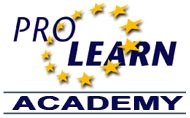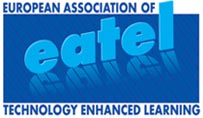International Journal of Mobile and Blended Learning (IJMBL)
Volume 1, Issue 1, January-March 2009 Published: Quarterly in Print and Electronically ISSN: 1941-8647 EISSN: 1941-8655 Published by IGI Publishing, Hershey-New York, USA www.igi-global.com/ijmbl
Editor-in-Chief: David Parsons, Massey University, Auckland, New Zealand
Editorial Preface
The editor is greatly pleased to introduce the inaugural issue of the International Journal of Mobile and Blended Learning. The focus of this journal is both mobile and blended learning, embracing technology-supporting learning worlds that may use various combinations of mobile, embedded, augmented, and immersive tools. The articles in this issue have all been invited, with a view to addressing various aspects of the current and future landscapes of mobile and blended learning. Some of the authors whose work appears in this issue will be very familiar to those who are already well read in the fields of mobile and blended learning. Others may be less familiar, but they have been invited to provide their own unique perspectives on the current and future potential of their research.
Contents:
PAPER ONE:
Learning in a Mobile Age John Traxler, Learning Lab, University of Wolverhampton, UK
This paper looks at the definition and evolution of mobile learning as the starting point for a discussion of this wider impact. The launch of the International Journal of Mobile and Blended Learning is one of several indicators that mobile learning globally is reaching a critical and sustainable momentum and identity. The past six or seven years have seen a host of pilots and initiatives across sectors and across countries and these have established firstly that mobile learning takes learning to individuals, communities, and countries where access to learning was challenging or problematic and secondly that mobile learning enhances, enriches, and extends how learning is understood. Environmental factors have meant that this development has been haphazard. The mobile learning community is now faced with broader challenges of scale, durability, equity, embedding and blending in addition to the earlier and more specific challenges of pedagogy and technology, but these developments take place in the context of societies where mobile devices, systems, and technologies have a far wider impact than just mobile learning as it is currently conceived.
To obtain a copy of the entire article, click on the link below. http://www.igi-global.com/articles/details.asp?id=33171
PAPER TWO: Innovation in Mobile Learning: A European Perspective
Agnes Kukulska-Hulme, The Open University, UK Mike Sharples, University of Nottingham, UK Marcelo Milrad, Växjö University, Sweden Inmaculada Arnedillo-Sánchez, Trinity College Dublin, Ireland Giasemi Vavoula, University of Leicester, UK
In the evolving landscape of mobile learning, European researchers have conducted significant mobile learning projects, representing a distinct perspective on mobile learning research and development. This article aims to explore how these projects have arisen, showing the driving forces of European innovation in mobile learning. The authors propose context as a central construct in mobile learning and examine theories of learning for the mobile world, based on physical, technological, conceptual, social, and temporal mobility. We also examine the impacts of mobile learning research on educational practices and the implications for policy.
To obtain a copy of the entire article, click on the link below. http://www.igi-global.com/articles/details.asp?id=33172
PAPER THREE: A Model of Collaborative Learning Scripts Instantiated with Mobile Technologies
Pierre Dillenbourg, Ecole Polytechnique Fédérale de Lausanne, Switzerland Zeno Crivelli, Ecole Polytechnique Fédérale de Lausanne, Switzerland
Scripts are pedagogical methods for triggering productive interactions during computer-supported collaborative learning. SWISH is a pedagogical design model for constructing scripts: it articulates the nature of expected interactions to the nature of task division enforced by the script. This model is applied to mobile learning: different task divisions are supported by a distributed simulation environment, in which the client runs on mobile phones or PDAs. This contribution maps the computational architecture of the learning environment to a model of collaborative learning.
To obtain a copy of the entire article, click on the link below. http://www.igi-global.com/articles/details.asp?id=33173
PAPER FOUR: Choreo:pod: Dance and the iPod Towards Blended Learning
Dennie Wilson, University of Wolverhampton, UK Ben Andrews, University of Wolverhampton, UK Crispin Dale, University of Wolverhampton, UK
The iPod is a pervasive technology that has had an influential impact upon engagement with sound and visual media. The extent to which the iPod can act as a learning and teaching technology is still at an embryonic stage. The paper reports upon the research project entitled Choreo:pod which has explored the student creation of dance performance for the iPod screen, in addition to its use as a wider learning and teaching technology. The paper discusses the process students engaged in when reflecting upon their experiences of engaging with the iPod as part of a blended learning approach.
To obtain a copy of the entire article, click on the link below. http://www.igi-global.com/articles/details.asp?id=33174
PAPER FIVE Affective Tutoring System for Better Learning
Abdolhossein Sarrafzadeh, Massey University, New Zealand Samuel T. V. Alexander, Massey University, New Zealand Jamshid Shanbehzadeh, Tarbiat Moalem University, Iran
Intelligent tutoring systems (ITS) are still not as effective as one-on-one human tutoring. The next generation of intelligent tutors are expected to be able to take into account the emotional state of students. This paper presents research on the development of an Affective Tutoring System (ATS). The system called “Easy with Eve” adapts to students via a lifelike animated agent who is able to detect student emotion through facial expression analysis, and can display emotion herself. Eve’s adaptations are guided by a case-based method for adapting to student states; this method uses data that was generated by an observational study of human tutors. This paper presents an analysis of facial expressions of students engaged in learning with human tutors and how a facial expression recognition system, a life like agent and a case based system based on this analysis have been integrated to develop an ATS for mathematics.
To obtain a copy of the entire article, click on the link below. http://www.igi-global.com/articles/details.asp?id=33175
For full copies of the above articles, check for this issue of the International Journal of Mobile and Blended Learning (IJMBL) in your institution's library. If your library is not currently subscribed to this journal please visit http://www.igi-global.com/journals/details.asp?ID=7884&mode;=recommend to recommend an IJMBL subscription to your librarian. This journal is also included in the IGI Global aggregated InfoSci-Journals. To learn more about InfoSci-Journals or to recommend a FREE 30-day trial to your librarian, please visit ww.infosci-journals.com
CALL FOR PAPERS
Mission of IJMBL:
The primary objective of the International Journal of Mobile and Blended Learning (IJMBL) is to provide comprehensive coverage and understanding of the role of innovative learning theory and practice in an increasingly mobile and pervasive technological environment. Whilst there have been many successful implementations of mobile learning systems, perhaps the most interesting, challenging and innovative research in this field has been in the area of blended learning, where mobility is but one aspect of a richer and more complex learning environment. As technology enables a more seamless experience of device supported learning worlds that may integrate mobile, embedded, augmented, and immersive technologies, we may expect to see increasing interest and activity in blended approaches to learning. The mission of IJMBL is to bring together researchers at the forefront of this field, in both technology and pedagogical practice, to assist in the development and dissemination of new approaches to both mobile and blended learning.
Coverage of IJMBL:
The coverage of the journal will span theoretical, technical, and pedagogical issues in mobile and blended learning. These embrace comprehensive or critical reviews of the current literature, relevant technologies and applications, and important contextual issues such as privacy, security, adaptivity, and resource constraints. We are interested in both the evaluation of current mobile and blended learning systems and the potential evolution of future developments in this field.
Among topics to be included (but not limited) are the following: Comprehensive or critical reviews of the current literature Evaluation of mobile or blended learning in practice Knowledge sharing Learner interaction / collaborative learning Mobile games for learning Mobile or blended learning applications Mobile or blended learning applied at different levels of education from pre-school to tertiary and beyond Pedagogical and/or philosophical underpinnings of mobile or blended learning Privacy and security issues Related research in learning, including e-learning and pedagogical approaches Resource constraints in the delivery of mobile or blended learning Reviews of the application of mobile or blended learning in multiple contexts Technologies that directly or indirectly support mobile or blended learning systems (devices, networks, tools etc.) The future of mobile or blended learning The role of Wikis, blogs, podcasts, messaging, other on-line tools and Web 2.0 components in learning delivery The roles of mobile, pervasive and immersive technologies in education Theoretical approaches to mobile or blended leaning solutions Use of mobile or blended learning in professional environments
Interested authors should consult the journal's manuscript submission guidelines at www.igi-global.com/ijmbl.
All inquiries and submissions should be sent to: Editor-in-Chief: David Parson at [email protected]





